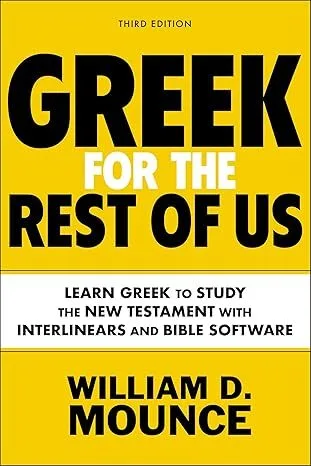Pronunciation Guide: dik-ah’-yo-mah (with emphasis on the second syllable)
Basic Definition

Key Information
δικαίωμα

Strong’s Entry
g1345
Strong’s G1345: δικαίωμα (dikaiōma) refers to a righteous decree, ordinance, statute, or requirement established by authority. It encompasses both the action of establishing what is right and the resulting righteous requirement or ordinance itself. In biblical contexts, it often denotes the divine ordinances given by God as expressions of His righteous standard and the legal basis upon which one is declared righteous.
Etymology and Morphology
- Part of Speech: Noun (neuter)
- Root Word: δικαιόω (dikaioō, G1344) – to justify, declare righteous
- Language Origin: Greek
- Primary Usage: Found in legal, theological, and ethical contexts across narrative and teaching sections of Scripture
- Word Family: Derived from the δικ- root which conveys the concept of rightness, justice, and that which conforms to established standards
δικαίωμα Morphology:
- δικαίωμα (nominative singular) – a righteous decree/ordinance
- δικαιώματος (genitive singular) – of a righteous decree/ordinance
- δικαιώματι (dative singular) – in/with/by a righteous decree/ordinance
- δικαίωμα (accusative singular) – a righteous decree/ordinance (as direct object)
- δικαιώματα (nominative plural) – righteous decrees/ordinances
- δικαιωμάτων (genitive plural) – of righteous decrees/ordinances
- δικαιώμασι(ν) (dative plural) – in/with/by righteous decrees/ordinances
- δικαιώματα (accusative plural) – righteous decrees/ordinances (as direct objects)
Origin & History
The term δικαίωμα has a rich history in Greek literature and thought, emerging from the Greek conception of justice (δίκη, dikē) and righteousness (δικαιοσύνη, dikaiosynē). In classical Greek, particularly in the works of Aristotle (in his “Nicomachean Ethics”), the term was used to describe a righteous act or the correction of an injustice. Aristotle distinguished between a general righteous requirement (δικαίωμα) and the specific act of justice applied in a particular case.
In the Septuagint (LXX), δικαίωμα became a significant term for translating several Hebrew words related to divine law, particularly חֹק (choq) and מִשְׁפָּט (mishpat). It appears frequently in Exodus, Leviticus, and Deuteronomy to describe God’s righteous ordinances given to Israel. For example, in Exodus 15:25-26, it refers to the statutes that יהוה (Yahweh) established for Israel. This translation choice in the LXX established an important theological connection between Greek concepts of justice and Hebrew understandings of divine law.
By the time of the New Testament, δικαίωμα had developed a specialized theological meaning in Jewish thought, particularly evident in the writings of Philo of Alexandria, who used it to describe both the righteous acts required by Torah and the resulting righteous status before God when these requirements were fulfilled.
Expanded Definitions & Translation Options
- Legal Decree or Ordinance – A statute, regulation, or requirement established by legitimate authority
- Act of Legal Justification – The act of declaring someone or something to be in the right
- Righteous Act – A concrete deed or behavior that fulfills a righteous requirement
- Divine Requirement – A specific standard established by God to express His righteous character
- Legal Basis for Acquittal – The ground upon which one is declared righteous in judicial contexts
δικαίωμα Translation Options:
- Ordinance – Emphasizes the established, authoritative nature of δικαίωμα as something ordered or decreed by a legitimate authority
- Righteous Requirement – Highlights the ethical standard embodied in the decree, capturing both the legal and moral dimensions
- Regulation – Underscores the regulatory function of δικαίωμα in ordering human behavior according to divine standards
- Just Decree – Emphasizes the justice inherent in the ordinance itself, suggesting it embodies what is fundamentally right
- Righteous Act – When used to denote not the requirement itself but the fulfillment of it through concrete action
Biblical Usage
The term δικαίωμα appears 10 times in the New Testament, with most occurrences concentrated in Romans and Hebrews. Its first appearance in Luke 1:6 describes Zechariah and Elizabeth as “walking blamelessly in all the commandments and ordinances [δικαιώμασιν] of the Lord.” This usage establishes an important baseline: δικαίωμα refers to divine requirements that can be concretely observed and followed.
In Romans, Paul develops a sophisticated theological usage of δικαίωμα, particularly in Romans 5:16-18, where he contrasts Adam’s transgression with the Messiah’s act of righteousness. Here, δικαίωμα functions both as the righteous act of the Messiah and as the legal basis for justification of believers. This dual meaning captures an essential Pauline insight: the Messiah’s obedience becomes the ground of the believer’s righteousness.
In Hebrews, particularly Hebrews 9:1-10, δικαίωμα describes the ceremonial regulations of the old covenant which pointed forward to their fulfillment in the Messiah. The author portrays these as “regulations for the body” that were temporary until the time of the new covenant.
Key verse references include:
- “And they were both righteous before God, walking blamelessly in all the commandments and ordinances [δικαιώμασιν] of the Lord.” Luke 1:6
- “But the free gift is not like the transgression. For if by the transgression of the one the many died, much more did the grace of God and the gift by the grace of the one Man, Jesus the Messiah, abound to the many. The gift is not like that which came through the one who sinned; for on the one hand the judgment arose from one transgression resulting in condemnation, but on the other hand the free gift arose from many transgressions resulting in justification [δικαίωμα].” Romans 5:15-16
- “So then as through one transgression there resulted condemnation to all men, even so through one act of righteousness [δικαιώματος] there resulted justification of life to all men.” Romans 5:18
- “so that the requirement [δικαίωμα] of the Law might be fulfilled in us, who do not walk according to the flesh but according to the Spirit.” Romans 8:4
- “Now the first covenant had regulations [δικαιώματα] for worship and also an earthly sanctuary.” Hebrews 9:1
- “They are only food and drink and various ceremonial washings—external regulations [δικαιώματα] applying until the time of the new order.” Hebrews 9:10
- “After this I heard what sounded like the roar of a great multitude in heaven shouting: ‘Hallelujah! Salvation and glory and power belong to our God, for true and just are his judgments [κρίσεις]… For the fine linen is the righteous acts [δικαιώματα] of God’s holy people.'” Revelation 19:1-2,8
Cultural Insights
In the ancient Mediterranean world, particularly within Jewish society, δικαίωμα had profound connections to covenant relationship. Unlike modern Western legal systems that view laws primarily as restrictions, ancient Israelites understood God’s δικαιώματα as gracious gifts that defined the boundaries of covenant faithfulness. When Zechariah and Elizabeth were described as “walking in all the δικαιώματα of the Lord” in Luke 1:6, this would have been understood not merely as legal compliance but as joyful participation in covenant relationship.
The term also connects to ancient Jewish understanding of mitzvot (commandments) as opportunities rather than burdens. Rabbi Chanina ben Dosa, though living slightly after the New Testament period, expressed a sentiment that illuminates how δικαίωμα would have been understood: “The purpose of wisdom is repentance and good deeds.” In this cultural framework, God’s righteous requirements (δικαιώματα) were not arbitrary impositions but pathways to spiritual flourishing.
This understanding helps explain why the Psalmist could declare his love for God’s precepts (Psalm 119) and why Paul, despite his emphasis on grace over law-keeping, could still affirm that “the law is holy, and the commandment is holy, righteous and good” (Romans 7:12). The concept of δικαίωμα embraced both the divine standard and the divine enablement to meet that standard—anticipating the New Covenant promise that God would write His laws on the hearts of His people (Jeremiah 31:33).
Theological Significance
The concept of δικαίωμα reveals the profound unity of God’s righteous character and His righteous requirements. Unlike human legal systems that may establish arbitrary statutes, God’s δικαιώματα flow directly from His nature. This is why the Psalmist could declare, “The law of יהוה (Yahweh) is perfect” (Psalm 19:7). Each divine ordinance reveals something of God’s character—His holiness, justice, and love.
More profoundly, δικαίωμα plays a crucial role in the Messianic fulfillment of the Law. When Paul speaks of “the righteous requirement [δικαίωμα] of the law” being fulfilled in believers through the Spirit (Romans 8:4), he reveals a stunning reality: the Messiah not only fulfills the law’s righteous requirements on our behalf, but through His Spirit, He actually produces conformity to those righteous standards within us. This fulfills Ezekiel’s prophecy that God would “put My Spirit within you and cause you to walk in My statutes” (Ezekiel 36:27).
The ultimate theological significance of δικαίωμα is found in Romans 5:18, where Paul states that “through one act of righteousness [δικαιώματος] there resulted justification of life to all men.” Here we see that Yeshua’s perfectly righteous life, culminating in His sacrificial death, becomes the legal ground (δικαίωμα) upon which believers are justified. The One who perfectly embodied all of God’s righteous requirements becomes the source of righteousness for those who could never meet those requirements themselves.
Personal Application
Understanding δικαίωμα transforms our approach to obedience. Rather than viewing God’s commands as arbitrary restrictions, we can see them as expressions of His perfect character—signposts guiding us toward the abundant life He intends. When we struggle with a particular commandment, we can ask: “What aspect of God’s character is this requirement revealing to me? How is this ordinance designed for my flourishing?”
This understanding also relieves the burden of legalism. Since true δικαιώματα flow from relationship with God rather than human effort, our focus shifts from anxious rule-keeping to cultivating intimacy with the One whose Spirit produces the fruit of righteousness within us. As we abide in the Messiah (John 15:5), we find ourselves naturally fulfilling the “righteous requirements of the law” not from external compulsion but from internal transformation—the very miracle promised in the New Covenant (Jeremiah 31:31-34).
Related Words
- δικαιοσύνη (dikaiosynē) [dik-ah-yos-oo’-nay] – righteousness, justice; the quality or character of being right or just. While δικαίωμα refers to a specific righteous decree or act, δικαιοσύνη refers to the broader quality or state of righteousness. See G1343
- δικαιόω (dikaioō) [dik-ah-yo’-o] – to justify, declare righteous, vindicate. This verb is the action from which δικαίωμα results—the act of declaring someone righteous or establishing what is right. See G1344
- δίκαιος (dikaios) [dik’-ah-yos] – righteous, just, conforming to God’s standard. This adjective describes a person or thing that conforms to δικαίωμα, fulfilling the righteous requirement. See G1342
- δικαίωσις (dikaiōsis) [dik-ah’-yo-sis] – justification, the act of pronouncing righteous. While δικαίωμα can refer to the legal ground of justification, δικαίωσις refers specifically to the process or act of justification itself. See G1347
- δικαστής (dikastēs) [dik-as-tace’] – a judge, one who determines what is δικαίωμα. This term refers to the person who has authority to establish or enforce righteous requirements. See G1348
Did you Know?
- Did you know that in Greco-Roman society, the concept of δικαίωμα extended beyond merely legal contexts into social relationships? In Aristotle’s writings, δικαίωμα could refer to the correction of an injustice in human relationships—anticipating how the Messiah’s δικαίωμα would correct the cosmic injustice introduced by Adam’s sin. This broader cultural understanding illuminates why Paul’s use of this term in Romans 5 would have resonated powerfully with his audience, who understood justice not merely as legal correctness but as restored relationship.
- Did you know that in modern Greek, the word δικαίωμα is still used today, but primarily means “right” in the sense of an entitlement or privilege? For example, “το δικαίωμα ψήφου” means “the right to vote.” This fascinating linguistic development shows how a term that originally described a righteous requirement came to describe a righteous claim or entitlement—mirroring how believers, who once stood condemned by God’s righteous requirements, now through the Messiah have the righteous claim to be called children of God (1 John 3:1).
- Did you know that the relationship between God’s δικαιώματα and human flourishing finds expression in the Jewish concept of halakhah (הֲלָכָה)—literally “the way to walk”? The root meaning refers to walking or going, suggesting that divine ordinances create a path for human thriving. This parallels Luke’s description of Zechariah and Elizabeth “walking blamelessly in all the commandments and ordinances [δικαιώμασιν] of the Lord” (Luke 1:6). God’s righteous requirements are not arbitrary obstacles but the very pathway to abundant life—what the Psalmist calls “the path of life” (Psalm 16:11).
Remember This
δικαίωμα reveals the magnificent convergence of divine justice and grace—where the same righteous decree that once condemned us becomes, through the Messiah’s perfect obedience, the very ground of our acceptance and the source of our transformation.
Note: While this entry strives for accuracy, readers engaged in critical research should verify citations and keyword occurrences in their Bible translation of choice. For Biblical citations, the F.O.G Bible project recommends Logos Bible software.
Strong's g1345




